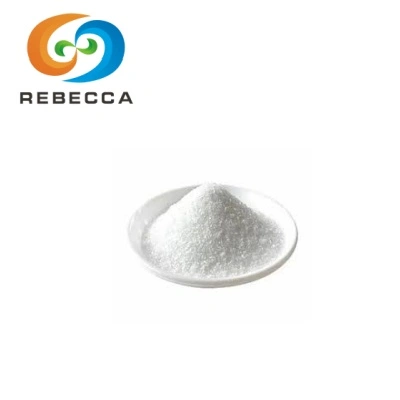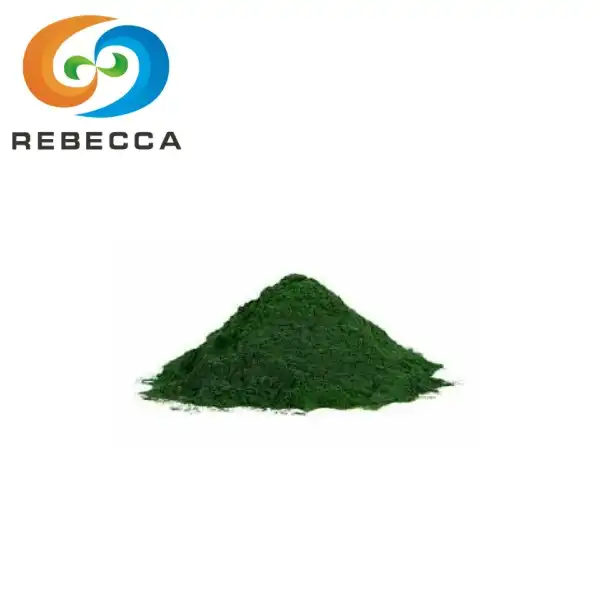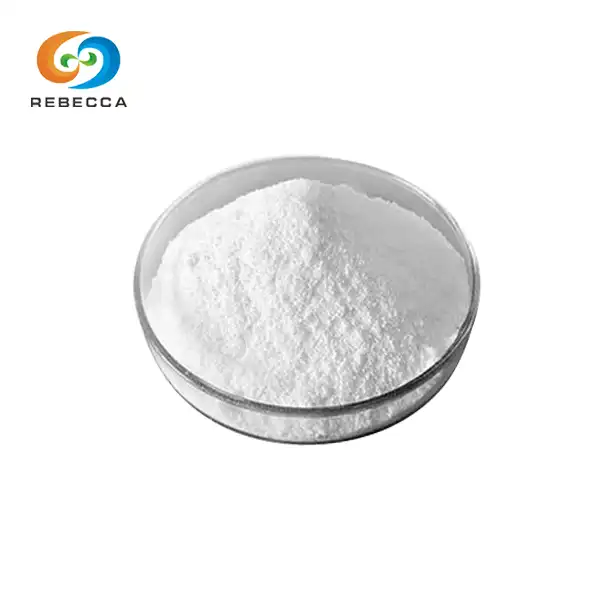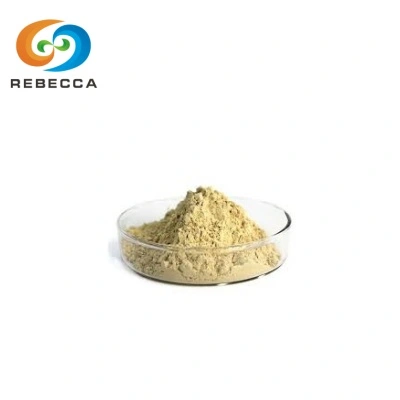How much alpha-lipoic acid for weight loss?
Alpha-lipoic acid (ALA) has gained attention as a potential aid for weight loss. Research suggests that an effective dosage of alpha lipoic acid for weight management typically ranges from 600 to 1800 mg per day. This powerful antioxidant may support weight loss efforts by improving insulin sensitivity, boosting metabolism, and enhancing fat oxidation. However, it's crucial to note that individual responses can vary, and ALA should be used as part of a comprehensive weight loss strategy that includes a balanced diet and regular exercise.

Product Name:alpha lipoic acid
CAS No.:1077-28-7
Specification:99%
Test Method:HPLC
Appearance:Light yellow to yellow powder
Typical Dosages Studied for Metabolic Support
Recommended daily intake for weight management
When considering alpha-lipoic acid supplementation for weight management, it's essential to understand the recommended daily intake. Studies have shown that a dosage range of 600 to 1800 mg per day can be effective for metabolic support and potential weight loss benefits. However, it's important to start with a lower dose and gradually increase it to assess individual tolerance and response.
Many researchers suggest beginning with 600 mg daily, divided into two or three doses taken with meals. This approach allows the body to adapt to the supplement while minimizing potential side effects. As your body becomes accustomed to ALA, you may consider increasing the dosage under the guidance of a healthcare professional.
Optimal dosage range for fat burning effects
The optimal dosage range for alpha-lipoic acid's fat-burning effects can vary depending on individual factors such as body weight, metabolic rate, and overall health status. Some studies have indicated that higher doses, around 1200-1800 mg per day, may provide more significant benefits for fat oxidation and weight loss.
However, it's crucial to remember that more isn't always better. Higher doses may increase the risk of side effects without necessarily providing proportional benefits. It's advisable to work closely with a healthcare provider to determine the most appropriate dosage for your specific needs and goals.
Duration of alpha-lipoic acid supplementation
The duration of alpha-lipoic acid supplementation for weight loss can vary based on individual goals and responses. Most studies examining ALA's effects on weight loss and metabolic health have lasted between 8 to 24 weeks. This timeframe allows for observable changes in body composition and metabolic markers.
For long-term use, it's essential to consult with a healthcare professional. They can help monitor your progress, adjust dosages if necessary, and ensure that ALA supplementation remains safe and effective for your specific situation. Regular check-ups and blood tests may be recommended to assess the supplement's impact on your overall health and weight loss journey.


Mechanism of Action
Alpha-lipoic acid's role in glucose metabolism
Alpha-lipoic acid plays a crucial role in glucose metabolism, which is fundamental to its potential weight loss benefits. ALA acts as a coenzyme in various metabolic processes, particularly in the conversion of glucose into energy within the mitochondria of cells. This function is essential for maintaining stable blood sugar levels and promoting efficient energy utilization.
Research has shown that ALA can enhance glucose uptake in muscle cells by activating the insulin signaling pathway. This action may lead to improved insulin sensitivity, which is particularly beneficial for individuals with insulin resistance or type 2 diabetes. By optimizing glucose metabolism, ALA may help reduce the likelihood of excess glucose being stored as fat, thus supporting weight management efforts.
Antioxidant properties for cellular energy production
One of the most notable characteristics of alpha-lipoic acid is its powerful antioxidant properties. As both a water-soluble and fat-soluble antioxidant, ALA can penetrate various cellular compartments, providing comprehensive protection against oxidative stress. This unique ability allows ALA to neutralize free radicals and reactive oxygen species that can damage cellular structures and impair metabolic processes.
By reducing oxidative stress, ALA supports mitochondrial function and enhances cellular energy production. Efficient energy production is crucial for maintaining a healthy metabolism and supporting physical activity, both of which are important factors in weight management. Additionally, ALA's antioxidant effects may help protect against inflammation-induced weight gain and metabolic dysfunction.
Impact on insulin sensitivity and fat oxidation
Alpha-lipoic acid has demonstrated a significant impact on insulin sensitivity and fat oxidation, two key factors in weight loss and metabolic health. By improving insulin sensitivity, ALA helps the body utilize glucose more effectively, reducing the amount of insulin needed to manage blood sugar levels. This improved insulin response can lead to decreased fat storage and increased fat burning.
Furthermore, ALA has been shown to activate AMP-activated protein kinase (AMPK), an enzyme that plays a crucial role in cellular energy homeostasis. Activation of AMPK can stimulate fat oxidation, increase glucose uptake in muscle cells, and suppress the production of fatty acids in the liver. These combined effects contribute to ALA's potential to support weight loss and improve overall metabolic health.
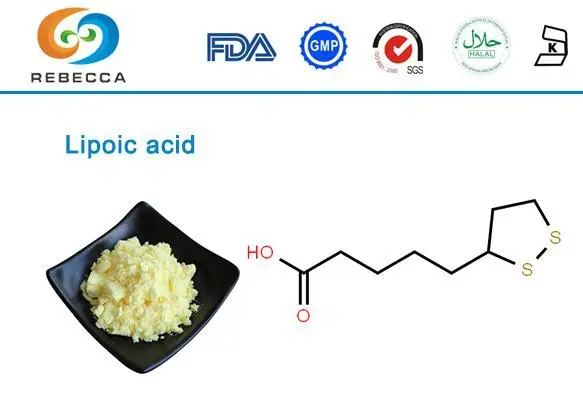
Side Effects and Safety
Common side effects of alpha-lipoic acid supplements
While alpha-lipoic acid is generally well-tolerated, some individuals may experience side effects, particularly when taking higher doses. Common side effects of ALA supplementation can include:
- Nausea or upset stomach
- Headaches
- Skin rash or itching
- Dizziness
- Mild fatigue
These side effects are typically mild and often subside as the body adjusts to the supplement. Starting with a lower dose and gradually increasing it can help minimize the risk of experiencing these effects. If side effects persist or worsen, it's advisable to consult with a healthcare professional.
Potential interactions with medications
Alpha-lipoic acid may interact with certain medications, potentially affecting their efficacy or increasing the risk of side effects. Some notable interactions include:
- Diabetes medications: ALA may enhance the blood sugar-lowering effects of insulin and other diabetes drugs, potentially leading to hypoglycemia.
- Thyroid medications: ALA might interfere with thyroid hormone levels and the effectiveness of thyroid medications.
- Chemotherapy drugs: Some studies suggest that ALA could potentially interfere with the effectiveness of certain chemotherapy treatments.
It's crucial to inform your healthcare provider about all supplements and medications you're taking to avoid potential interactions and ensure safe supplementation.
Safety considerations for long-term use
Long-term use of alpha-lipoic acid appears to be generally safe for most people when taken at recommended doses. However, there are some safety considerations to keep in mind:
- Pregnancy and breastfeeding: The safety of ALA during pregnancy and breastfeeding has not been thoroughly studied. It's best to avoid supplementation during these periods unless specifically recommended by a healthcare provider.
- Diabetes management: People with diabetes should monitor their blood sugar levels closely when taking ALA, as it may affect glucose control.
- Thiamine deficiency: In rare cases, high doses of ALA may exacerbate symptoms of thiamine deficiency. Individuals at risk of this condition should consult with a healthcare professional before supplementing with ALA.
Regular check-ups and blood tests can help ensure that long-term ALA supplementation remains safe and effective. It's always advisable to consult with a healthcare professional before starting any new supplement regimen, especially for extended periods.
Alpha-lipoic acid shows promise as a supportive supplement for weight loss efforts. The recommended dosage typically ranges from 600 to 1800 mg daily, with potential benefits for metabolic health and fat oxidation. However, individual responses may vary, and it's crucial to approach ALA supplementation as part of a comprehensive weight management strategy. Always consult with a healthcare professional to determine the most appropriate dosage and duration for your specific needs, and be mindful of potential side effects and interactions.
Alpha Lipoic Acid Suppliers from China
Shaanxi Rebeccia is a leading supplier of high-quality alpha-lipoic acid in China. Our production base is equipped with internationally leading extraction, separation, and purification equipment, and operates in strict compliance with GMP and ISO standards. From raw material procurement to finished product delivery, every step undergoes rigorous quality control to ensure the safety and efficacy of our products. As a professional alpha lipoic acid supplier, we offer specifications including CAS No.:1077-28-7, 99% purity (HPLC tested), and light yellow to yellow powder appearance. For inquiries about our premium products, contact us at information@sxrebecca.com.
- Kucukgoncu S, et al. Alpha-lipoic acid (ALA) as a supplementation for weight loss: Results from a meta-analysis of randomized controlled trials. Obesity Reviews. 2017;18(5):594-601.
- Namazi N, et al. Alpha-lipoic acid supplement in obesity treatment: A systematic review and meta-analysis of clinical trials. Clinical Nutrition. 2018;37(2):419-428.
- Rochette L, et al. Alpha-lipoic acid: Molecular mechanisms and therapeutic potential in diabetes. Canadian Journal of Physiology and Pharmacology. 2015;93(12):1021-1027.
- Gomes MB, Negrato CA. Alpha-lipoic acid as a pleiotropic compound with potential therapeutic use in diabetes and other chronic diseases. Diabetology & Metabolic Syndrome. 2014;6(1):80.
- Packer L, Cadenas E. Lipoic acid: Energy metabolism and redox regulation of transcription and cell signaling. Journal of Clinical Biochemistry and Nutrition. 2011;48(1):26-32.
